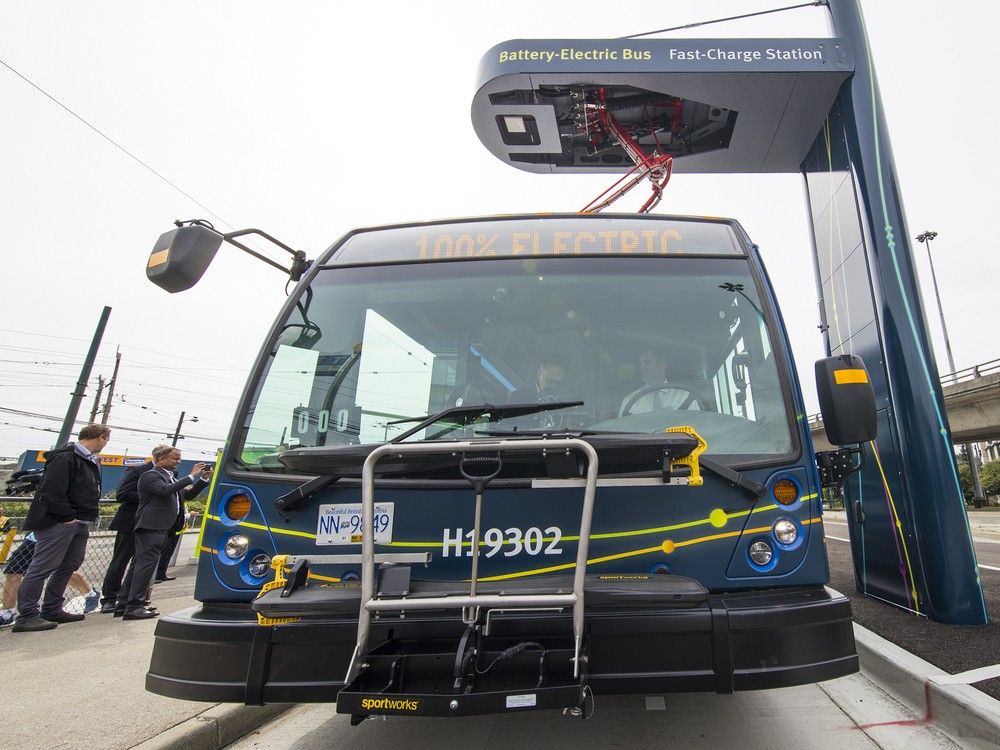
TransLink announced Friday it will expand its electric fleet with another 102 buses, add electric chargers, and upgrade the Port Coquitlam transit centre.
The investments are possible with approval Friday from Metro Vancouver’s board of directors for $479 million in spending allocated from money that comes from the federal government’s community building fund.
TransLink already has 19 battery-electric powered buses on the road with 57 more on the way to help replace its diesel fleet, part of a plan to help reduce its greenhouse gas emissions.
With the latest funding, seven more battery-powered buses will roll out this year, 64 in 2026, and 31 in 2027.
“We are now set up to replace aging diesel buses with a diversified fleet that will serve our customers efficiently and sustainably,” said TransLink CEO Kevin Quinn.
TransLink already operates the second-largest fleet of 262 fully electric trolley buses in North America . They operate off of overhead cables and are different than the 178 battery-powered buses TransLink will have after this round of funding. Its fleet totals about 1,700, including 466 diesel-electric hybrids, 401 diesel buses, 299 compressed natural gas buses, and 163 gasoline community shuttle buses.
The made-in-Canada LFSe+ electric buses from Novabus , can travel more than 150 kilometres on a single charge and can charge for the next trip in approximately five minutes while customers board.
The Metro Vancouver board approved the $479 million in spending Friday morning with little fanfare. Of that money, more than $200 million is going to pay for the buses, with other funding will go to 64 chargers and improvements at the Port Coquitlam and Marpole transit centres to support the batter-powered buses.
The total cost of the projects is $1.264 billion, of which some has already come from the federal government’s community building fund, another federal funding program, and local sources.
Mike Hurley, Burnaby’s mayor and chair of Metro Vancouver’s board, noted that municipalities have pooled their federal funding and prioritized low-carbon transit.
“We know that part of a healthy, livable region is a strong public transportation system,” he said.
TransLink officials who made a short presentation to the Metro board Friday said the battery-powered buses will help it achieve a 2030 target of reducing carbon emission by 45 per cent.
They are also using renewable natural gas and renewable diesel to reach that target.
Wade Change, the Liberal MP for Burnaby Central, said the expansion of battery-powered buses will encourage more people to choose transit. He said his government remains committed to helping communities build a greener, more connected future.